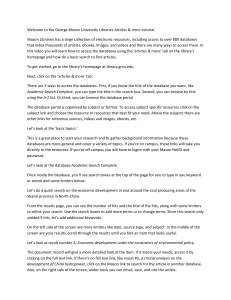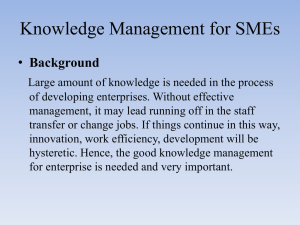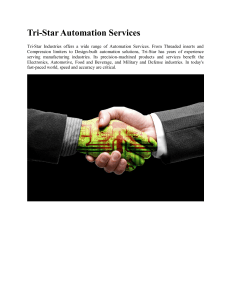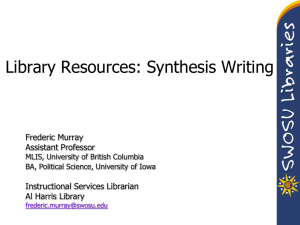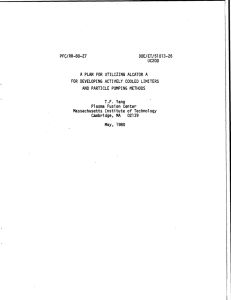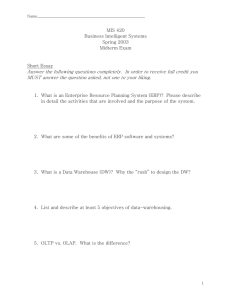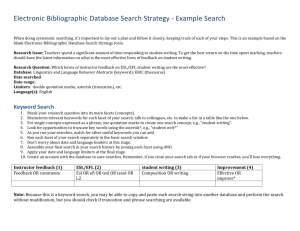'R-CEPS' limiters to Inter-Country Expansion for
advertisement
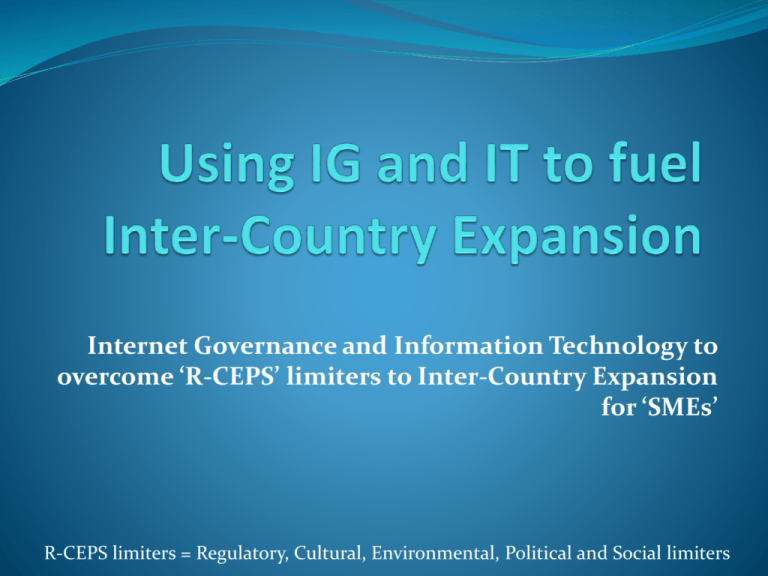
Internet Governance and Information Technology to overcome ‘R-CEPS’ limiters to Inter-Country Expansion for ‘SMEs’ R-CEPS limiters = Regulatory, Cultural, Environmental, Political and Social limiters Current Situation Entrepreneurs Abound (i.e. many new Small/Medium enterprises) Ideas remain not channeled from “market” perspective (limited regional availability) Some SMEs end up with large (possibly hollow) enterprises – that launch IPOs – but are unable to sustain Most such organizations lose out because of limited market reach even though the same product could be hugely successful in another region VCs/Private Equity – many newcomers in this arena as well, who know how to ‘sustain’ business but not how to ‘get to selfsustainability’ and rapid overseas expansion R-CEPS limiters = Regulatory, Cultural, Environmental, Political and Social limiters Why overseas? Reaching into the US, UK and EU result in immediate 500 million or more prospective customers (experimental basis this is between India PIC) Online market has no real limitations, but without a physical presence growth is very limited Creating one office can immediately clear a $ flow route that would benefit the home country, pull in foreign exchange Creates further avenues for local on-ground expansion; acquiring local assets/manpower and targeting a larger market. R-CEPS limiters = Regulatory, Cultural, Environmental, Political and Social limiters Status Quo Technologies like CRM and ERP have penetrated into Medium to Large enterprises but are not very heavily used in Small to Medium Enterprises. Multiple segments of a business can benefit greatly with integrated governance processes HR (leave, attendance) IT (email, systems) Travel (company travel) Financials (accounting, billing & invoicing) R-CEPS limiters = Regulatory, Cultural, Environmental, Political and Social limiters We know this. Where’s the problem? There are 5 separate mismatch factors that can cause potential problems with inter-country expansion: Cultural Environmental Political Social Regulatory (the easiest to cover since its written down) Other technological problems: CRM/ERP is focused only at one region! Currency limitations (INR works but not USD), accounting protocol differences Cross-country logistics complexity– attendance, holidays, travel need to be dual-calculated – manually (remember Small orgs) Reliable cross-region infrastructure –in the Pacific emails should not show “India, 5 AM” when in the middle of a 11 AM meeting… R-CEPS limiters = Regulatory, Cultural, Environmental, Political and Social limiters What I wish to do Identify how Internet Governance / Information Technology has been utilized in the past to simplify expansion of organizations into other countries (ERP/CRM is one of these methods). Identify primary requirements of such organizations and the difficulty they faced in the expansion process. Identify clearly the key growth limiting factors – primarily focusing on regulatory, political, social, environmental and cultural factors (R-CEPS) Identify key players (expansion ‘helpers’) currently working on bridging parts of this gap and provide a directory of the same to simplify the process, while ensuring organizations have adequate knowledge on what is to be expected on both sides Condense a key set of best practices fundamental to each country/region, thus reducing the organization’s expenditure of time, money and goodwill in initial establishment and expansion. Questions for you SME = Small/Medium Enterprise i. ii. iii. iv. What is the one thing lacking - in your view - to make this theory viable in your country. How many SMEs exist in your country. What benefit do you see for small/medium enterprises in your country if they can expand to (say) the US, EU, UK, India more easily (estimate 30-50% reduction of effort & expense). Assume no cost from facilitators. How many SMEs want such a solution today. Approximate numbers are adequate. Please mail me on chaitanyabd@gmail.com Thank you
